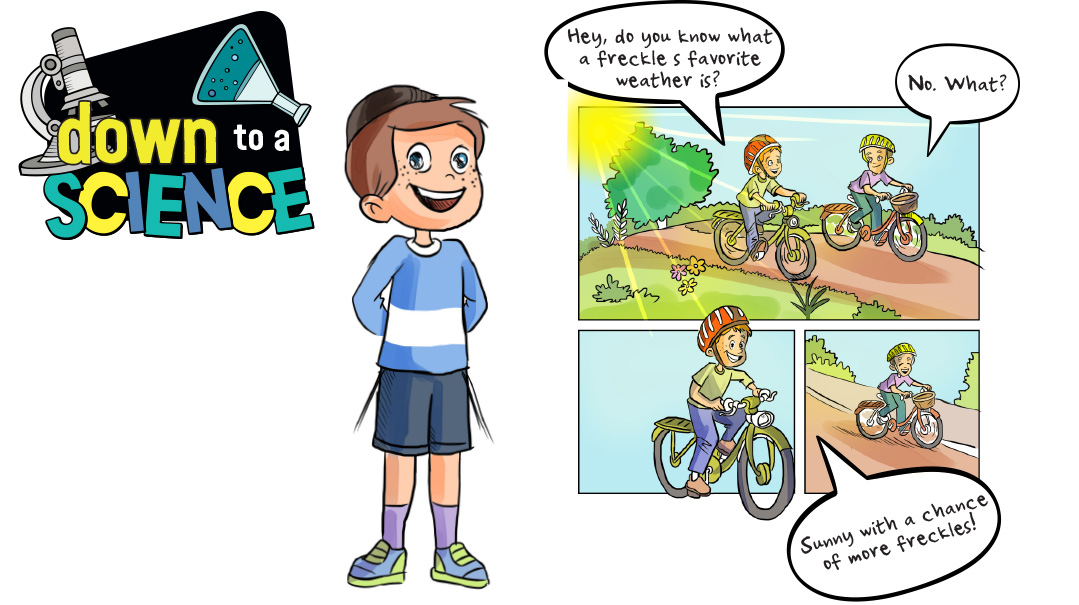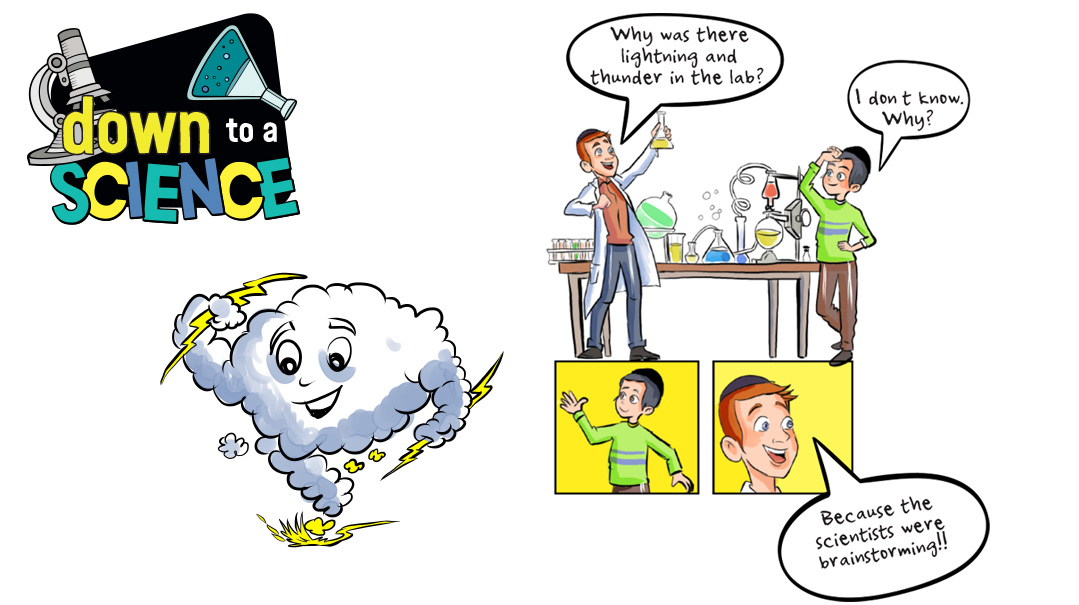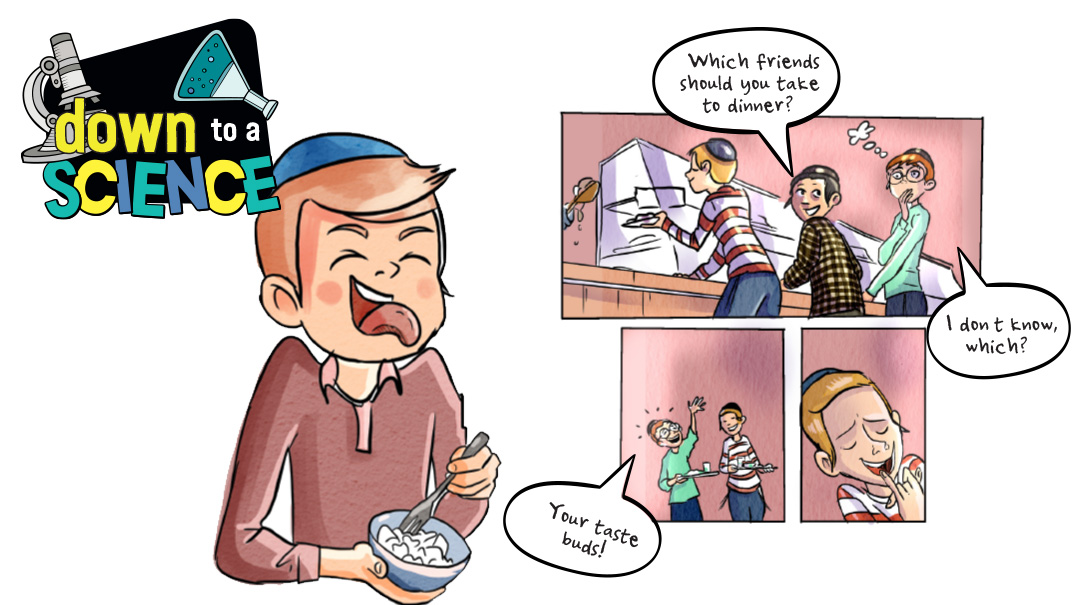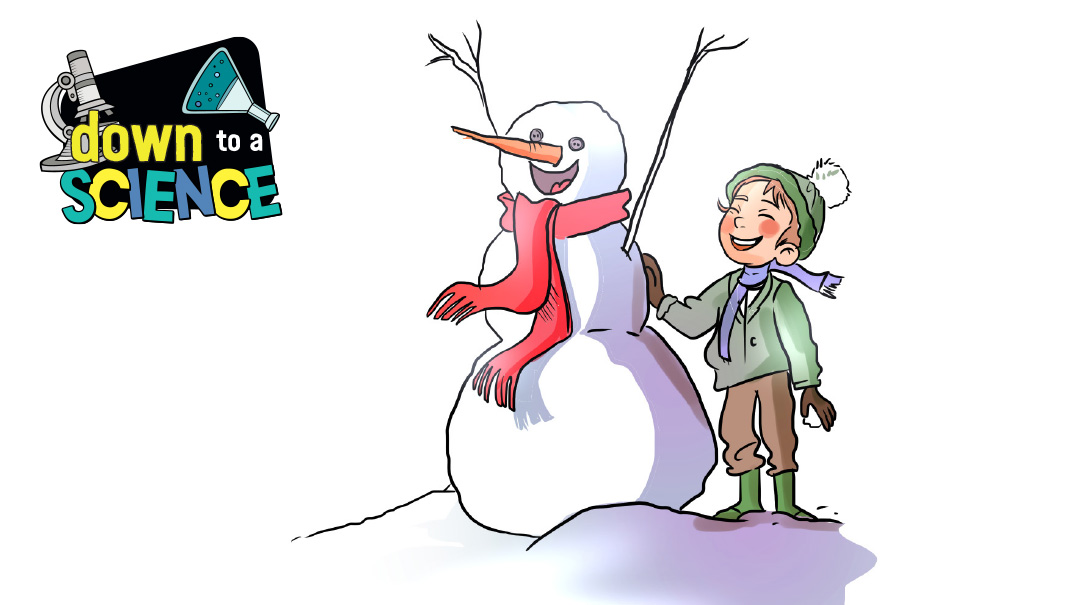Why Do Things Fall?

Gravity is the force of attraction that pulls all matter together. Simple, right?

Hello kiddos,
This is Professor Mordy Maven, Thinker, Wonderer, and Figure-Outer of all things Science-ish. What that basically means is I try really hard to figure stuff out. I do the hard work so you don’t have to!
Today, I came home starving, so I sat down to have an after-school snack. As I was carefully placing the jalapeno herring on top of my peanut butter cracker, I reached for the ketchup. Before I could get it, my sister lunged over her highchair, grabbed it, and threw it on the floor. “Down!” she said. I bent to pick it up, and she threw her apple slices and like ten thousand Cheerios on top of my head. “Down! Down!” she screamed, cackling hysterically.
As I brushed Cheerio crumbs out of my ears, I muttered to myself, “Of course, it went down. If you throw something, it’s going to fall down.”
But that got me to thinking. Why do things fall down? Why doesn’t anything ever fall up? I scarfed down my PB and herring and hurried up the stairs to do some research.
My stomach was feeling a little rumbly. Maybe I should have stuck with plain schmaltz instead of experimenting with jalapeno herring? I’m not sure. But anyway, my research indicated that there’s a reason why I have Cheerio crumbs in my ear. And that reason is… gravity.
What’s gravity? Well, gravity is the force of attraction that pulls all matter together. Simple, right? Let me explain a little more.
All objects on earth are made of matter. Matter is anything that has weight and takes up space. (Like my brother. I guess he does matter. Haha!) And anything that’s made of matter will have gravity. For us on earth, having gravity means being pulled down to stay on the earth’s surface.
Different objects have different amounts of gravity or “gravitational pull.” The amount of gravity that an object has depends on how big it is. It also depends on how close you are to that object. So, for example, the sun is much bigger than the earth. (I know, hard to believe, right? But it’s true!) And yet, we all stick to the earth and don’t go flying up to the sun, because we’re closer to the earth, so even though it’s smaller, it still has more gravitational pull on us.
How do we know about gravity? Well, since the olden days people have wondered what keeps people attached to the ground and not just floating around or flying through space. One day, this guy named Isaac Newton figured it out! He came up with a theory called Newton’s Law of Universal Gravitation.
Gravity is important in our everyday lives because without it we’d need to be strapped down to stay in one place. And if you threw a ball up in the air, it would never come back down! It would just keep floating away into the atmosphere. That would make playing basketball impossible. Also, if we were all strapped down, recess would be way less fun. But gravity doesn’t only affect humans — it affects the whole planet. Gravity keeps the planets orbiting in the right distance from each other. Earth needs to be close enough to the sun so that we can feel its warmth and see it’s light. But if we got too close, it would be dangerously hot for the whole planet. It’s the gravitational pull of the planets that keeps the earth just exactly the right distance from the sun so we can survive without getting burnt to a crisp!
Gravity also determines weight, because weight is actually a measure of the force of gravity on an object and how hard it pulls that object to the earth’s surface. Like I told my mother, “See, you didn’t gain weight over Yom Tov. You just got more gravity!” I thought I was being nice, but she didn’t seem too pleased. Oh well!
Gravity affects the ocean tides because high and low tides are caused by the moon’s gravitational pull on the oceans. So, as you can see, gravity is really important in every part of our world.
To sum it up, gravity is the reason my sister’s Cheerios fell down into my hair and didn’t float up into her nose. (But I don’t think gravity can explain why I feel like I’m about to “throw up” my herring snack.)
Here are some fascinating facts about gravity:
Astronauts are not pulled by the Earth’s gravity. That’s why things float all around in spaceships. And without the force of gravity pushing down, astronauts’ spines relax and stretch out. People in space actually get taller!
Different planets have different amounts of gravity, and gravity affects weight. So, someone who weighs 100 pounds on Earth will weigh 16.6 pounds on Mars and 252.8 pounds on Jupiter!
A little round magnet has enough electromagnetic force to resist gravity and stay stuck on your fridge without falling down. Go, magnet!
(Originally featured in Mishpacha Jr., Issue 897)
Oops! We could not locate your form.






